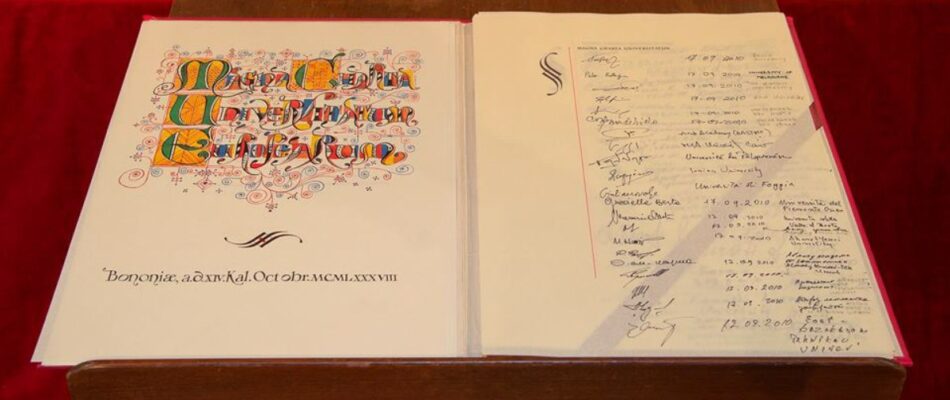
Modern collegiality as a catalyst of university values
On the first day ESU hosted a World Café table focussing on how modern collegiality can become a catalyst for the values enshrined in the Magna Charta Universitatum, hosting three rounds of discussions. Through the discussions it became apparent that there is a need to involve and ensure the students’ active participation and influence in the governance system in a more meaningful way.
Some of the structural issues raised were among others that students are rarely seen as equal stakeholders in the sense that they rarely have an equal number or majority of votes in any decision-making body. Furthermore, in some places they are excluded from the Board of Directors of the university. This raised a discussion, from one participant, about the extend to which student representatives can be held responsible for the decisions they make. Other issues raised were students’ access to adequate and timely information to base decisions on, as well as the challenges that distance campuses face by being further away from the top management of the university, which in effect only makes it even harder to achieve modern collegiality.
On the other hand, student representatives also admit that they have to improve their work. Engaging the broader student population and raising awareness of the issues that are fought by the representatives remains a challenges, which is largely reflected in low electoral participation throughout European universities.
However, aside all these issues, there was a striking consensus that Modern Collegiality should be the future of university governance. There was no doubt that engaging students and academics alike as equal partners would lead to not only a more independent university, but also a university in which challenges are addressed more efficiently and quality solutions are reached and implemented most successfully.
Fact box 1: What is the Magna Charta Observatory?
The Magna Charta Observatory is the vanguard of the Magna Charta Universitatum, which contains principles of academic freedom and institutional autonomy as a guideline for good governance and self-understanding of universities in the future. The document was first signed by Rectors in 1988 but has since grown to more than 800 universities and expanded outside Europe.
Fact box 2: An introduction to modern collegiality
Universities across the World today are dominated by two distinct governance systems: 1) the Conservative approach where governance is reserved for a small elite, usually the senior academics, and 2) the New Public Management approach, where the university is understood and governed as a private enterprise. Modern collegiality rejects these two extreme poles and builds on the foundation of student-centred learning.
In this governance model, proposed by ESU, the basic tenet is the development of the old collegiality to suit the needs of the 21st century. In this model, staff and not the least students are represented in all decision-making bodies across the school and university, empowering them to uphold students’ rights and influence the education they receive. The elected representatives will be responsible of gathering input from the student population through the student councils, and likewise they will be responsible of disseminating information through the same system.
